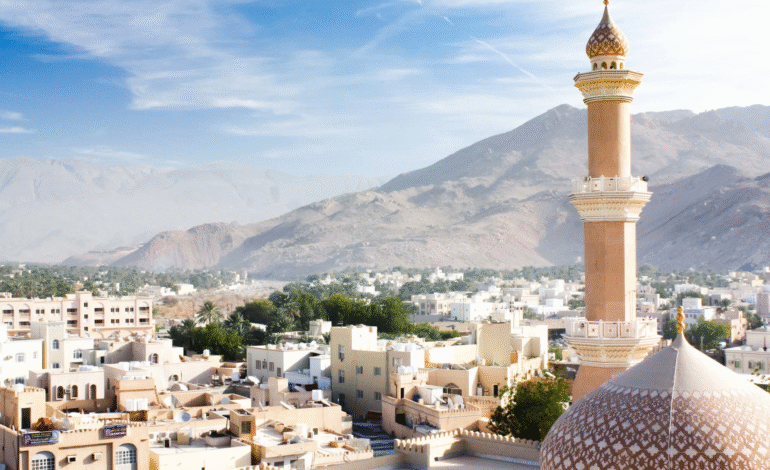Oman Launches National Payment Card to Boost Digital Payments

Oman has taken an important step to improve its digital economy by launching a national payment card. The new card will be supervised by the Central Bank of Oman (CBO) and issued through local banks and licensed payment providers.
This move is not just about payments. It is about building a stronger and safer financial future for the Sultanate. By introducing a card managed within Oman, the country is moving toward financial independence, better security, and improved convenience for both consumers and businesses.
A New Era in Payments for Oman
For many years, people in Oman used global systems such as Visa and Mastercard to make digital payments. These systems worked well but also created limits. They meant that banks and customers had to depend on foreign companies, and fees often left the local economy.
The new national card changes this. It creates a unified payment network inside Oman, lowering costs and giving the Central Bank more control. With this system, Oman is making sure its money stays inside the country and that its financial system is ready for the future.
Designed for Everyday Convenience
The card is built to make life easier. People can use it in shops, at point-of-sale (POS) machines, or online. Payments will be fast, secure, and reliable.
The card comes with modern security tools like encryption, fraud prevention, and in some cases biometric checks. These features give users more confidence when they pay digitally. For businesses, it means lower costs and faster settlements. This makes the system helpful for everyone, from large companies to small shops.
Supporting Oman Vision 2040
The new card is also linked to Oman Vision 2040, the country’s plan to build a stronger, more diverse economy. Vision 2040 highlights the importance of technology, innovation, and financial inclusion.
By introducing its own payment card, Oman is putting these goals into action. The project supports digital banking, mobile wallets, and QR code payments. Together, these tools move the country closer to a smart and cash-lite economy.
Bringing More People Into the Financial System
Financial inclusion is one of the biggest goals behind this launch. Many people in Oman still rely on cash, especially in rural areas. Some do not have access to international banking services.
The national card will make banking more accessible. With a card that works everywhere in Oman, more people can pay safely, save money in banks, and take part in the formal financial system. This not only helps individuals but also strengthens the overall economy.
Building Stronger Banking Infrastructure
The card also supports Oman’s larger banking system. With its own local payment card, the country is better protected against global problems, such as disruptions in foreign systems or sudden fee changes.
It will also work smoothly with e-commerce platforms. Online shopping in Oman is growing fast, and the new card will make it easier for customers to pay and for businesses to accept payments. By keeping transactions local, banks and payment providers can keep more value inside Oman instead of sending money abroad.
Moving Toward Economic Self-Sufficiency
The introduction of a national card is not just about technology. It is about self-reliance. By creating its own payment network, Oman controls its financial data, improves security, and ensures that its economy is less dependent on other countries.
This also means that Oman can respond faster to risks like cyber threats, global payment outages, or international restrictions. It makes the system more resilient and future-ready.
Oman in the Regional Fintech Race
Across the GCC, countries are working to build modern payment systems. The UAE has launched its Domestic Card Scheme (DCS), Saudi Arabia already has its Mada network, and other Gulf nations are upgrading their fintech tools.
By launching its national card, Oman is keeping pace with its neighbors. The move shows that the Sultanate is serious about building a competitive digital economy and wants to attract investors and fintech companies to its market.
Benefits for Businesses and Consumers
Businesses will save money by avoiding high fees linked to foreign systems. This is especially helpful for small and medium-sized enterprises (SMEs), which are often the backbone of local economies.
For consumers, the card is safe and widely accepted. They can shop, pay bills, and use services with less worry about fraud or extra charges. The result is a payment system that works well for both sides of the market.
Building Trust in Digital Payments
One of the main barriers to digital adoption has always been trust. Many people still prefer cash because they are unsure about security in online or card transactions.
With the Central Bank directly supervising the system, the national card offers a high level of protection. This will help to build confidence and encourage people to move away from cash.
Toward a Cash-Lite Economy
The world is moving fast toward cashless societies. The COVID-19 pandemic made this shift even stronger as people looked for contactless solutions.
Oman’s national card supports this change. It makes digital payments simple for everyday needs, from shopping in supermarkets to paying utility bills. As more people use the card, Oman will reduce cash transactions and create a system that is transparent, efficient, and modern.
Challenges and Opportunities
The launch of the national card is a big achievement, but challenges remain. People need to be made aware of the card, and merchants must be encouraged to accept it. Education campaigns will play a key role in showing how safe and useful it is.
Even with these challenges, the opportunities are huge. The national card will help Oman become more financially independent, support economic growth, and push the country closer to the goals of Vision 2040.







